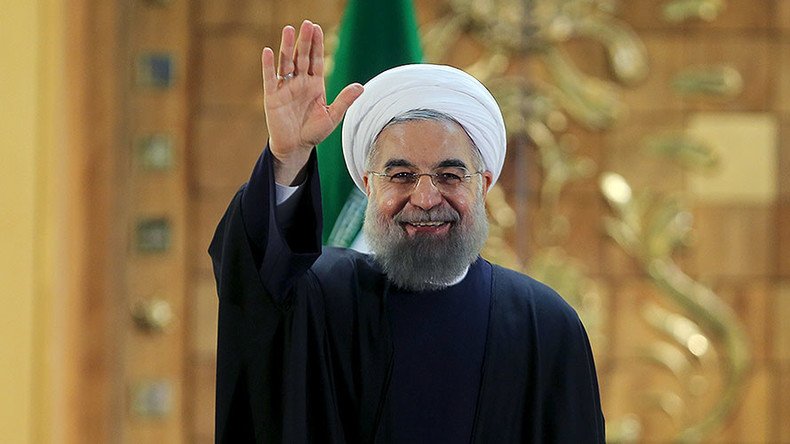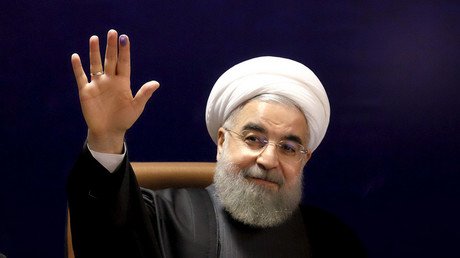Iran President Rouhani to visit France, Italy in 1st Europe trip since sanctions lifted

Iranian President Hassan Rouhani will visit Europe for the first time since the EU lifted sanctions against his country. The trip to Italy and France is scheduled for next week, according to a diplomatic source.
Rouhani's first stop will be in Rome, where he will meet the Italian president, prime minister and business leaders. He is scheduled to meet Pope Francis on the second day of his visit, the source told Reuters. The leader will depart for Paris on January 27.
The Iranian president had originally planned to visit the two countries in November, but those trips were canceled following the Paris terror attacks, which left 130 people dead and 352 others injured.
Both Europe and the US lifted sanctions against Iran on Saturday, with the International Atomic Energy Agency (IAEA) announcing that Tehran had fulfilled all of the measures required under its deal with the P5+1 group (US, UK, France, Russia, China, and Germany).
"The report was submitted to IAEA board of governors and to the United Nations Security Council," IAEA director general Yukiya Amano said, adding that "it was issued after agency inspectors on the ground verified that Iran has carried out all measures required under the JCPOA (Iran's nuclear deal) to enable implementation day to occur."
Responding to the lifting of the sanctions, Rouhani tweeted the “blessing” and praised the “patience” of his nation.
#ImplementationDay--I thank God for this blessing & bow to the greatness of the patient nation of Iran. Congrats on this glorious victory!
— Hassan Rouhani (@HassanRouhani) January 16, 2016The move by the US and EU will unlock access to US$100 billion in frozen assets and open a path to new oil, trade, and financial opportunities.
An executive order revoking sanctions imposed by Washington was issued by US President Barack Obama. However, the US has so far lifted only “secondary sanctions” against Iran, which means American citizens are still banned from trading with the country, according to the US Department of Treasury. Although some 400 Iranian companies and individuals are to be removed from the sanctions list, 200 others will remain blacklisted.
Less than one day after Washington revoked certain sanctions, the US Treasury Department announced it was imposing ballistic missiles sanctions on Iran after Tehran released five American prisoners. The Obama administration delayed implementing the sanctions for more than two weeks, while negotiations to release two US prisoners being held in Iran were taking place, Reuters reported, citing sources.
Meanwhile, in order for the EU sanctions to be officially lifted, a decision is required by the European Council with the participation of the leaders of all 28 EU member states. A publication in the EU's Official Journal is also necessary to complete the process.
The lifting of the sanctions follows the July 14 signing of the JCPOA deal between Iran and the P5+1 group, which saw Iran agreeing to shrink its atomic program, with the US, EU and UN promising to lift sanctions in return. Under the agreement, Iran agreed to reduce its operating centrifuges enriching uranium by two-thirds, to just over 5,000 machines.
The deal aims to increase the time Iran would need to make enough fissile material for a nuclear weapon from several months to a year, mainly by capping its ability to enrich uranium, which can create reactor fuel and warhead material, among other things. The agreement puts Iran's nuclear activities under IAEA watch for up to 15 years, with an option to re-impose sanctions if Tehran breaks its commitments.
The move comes after decades of tension between Iran and Western countries, which have long accused Tehran of using its nuclear program to develop atomic weapons. Iran, however, has repeatedly insisted that the program is solely for peaceful purposes.













